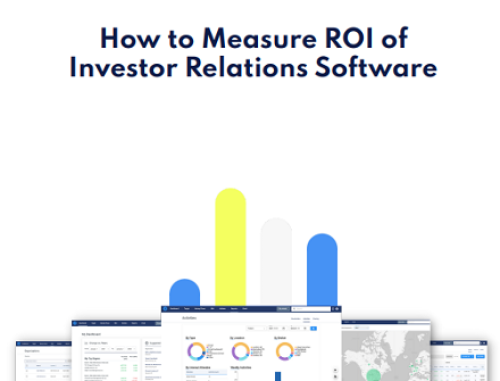Just four years on from when most IROs first heard of Bitcoin, 2021 was a breakout year for crypto, when ownership reached almost 20 percent of people in the US, Europe and Australia, and closer to 40 percent in some developing countries. Almost half of owners were first-time purchasers during 2021, according to a global survey conducted by New York-based exchange Gemini.
During the year, Bitcoin reached a high of $70,000 but its percentage of total cryptocurrency market share dropped from 70 percent to 40 percent in favor of altcoins. At the same time, decentralized finance participation in crypto lending, derivatives and trading climbed to $110 bn in total value locked from $10 bn the year before.
The year 2021 was also a landmark because crypto became a multi-trillion-dollar asset class, putting it on the radar of fund managers, family offices and financial institutions. Coinbase, one of the largest crypto exchanges, reported a record-breaking surge in institutional investors trading $1.14 tn worth of cryptocurrencies, up from $120 bn the year before, more than twice the $535 bn traded in retail shares.
A total of 37 crypto investment products launched in 2021, while investment products enjoyed inflows of $9.3 bn, compared with $6.8 bn in 2020, according to CoinShares. Bitcoin funds attracted $6.3 bn worth of capital, Ethereum products saw inflows totaling nearly $1.4 bn and multi-funds were also popular.
Multi-billion-dollar crypto asset managers were born, including 3iQ, 21Shares, ETC Group and ProShares. ETFs have been available in Canada since 2020 and, in early 2022, futures-based ETFs got the green light in the US. At least 12 spot-market ETFs are currently awaiting SEC approval, providing even more widespread adoption and day-to-day crypto-price exposure for US investors.
Adoption of digital assets is being driven by fund managers advocating diversification by placing a small percentage in portfolios. But there is concern crypto is losing its diversification edge and is now following the price path of regular equities. Inflation also drives ownership, and investors are more likely to own crypto if their currency is historically unstable, which explains higher adoption rates in developing countries.
Crypto asset manager growth
Grayscale, the world’s largest institutional crypto investor, grew its assets under management to $60 bn in Q4 2021. Early 2022 saw a pull back of crypto prices across the board but, even so, Grayscale owns 3 percent of all the outstanding supply of available Bitcoin, a limited-supply asset, and is now bigger than the biggest gold fund.
BlackRock, JPMorgan, Goldman Sachs, Deutsche Bank, Morgan Stanley and Mass Mutual are just a fraction of a growing list of more traditional financial institutions embracing digital assets. University endowment funds have crypto allocations and a growing number of pension funds are planning allocations to crypto. Publicly traded companies such as Tesla and Block (formally Square) hold crypto on their balance sheet, while MicroStrategy holds more than $4 bn of Bitcoin as its primary treasury reserve asset.
Banks and other large financial institutions are setting up internal crypto working groups or trading desks, or are working on future funds. Crypto ecosystem players, such as auditors and custody providers, are offering services now and planning for more. Traditional large payment companies are not standing by waiting to be disrupted: Visa’s crypto-linked credit card use hit $2.5 bn in its most recent quarter through 65 crypto-wallet partners.
Having more regulatory clarity is the biggest issue the crypto industry faces and has been advocating for a solution to, which would mean fewer risk and compliance concerns and even more adoption. US President Joe Biden’s executive order signaled a co-ordinated US government agency approach to understand and provide future regulatory clarity for digital assets. The SEC may have crypto trading platforms and tokens in its sights as chair Gary Gensler has indicated these are like traditional securities and must play by the same rules.
In the UK, the Financial Conduct Authority has also been signaling a tightening of crypto regulation. European lawmakers, meanwhile, have just voted in a widely criticized measure that will outlaw anonymous crypto transactions of all sizes – a move crypto industry participants warn could stifle privacy and innovation. Noah Perlman, COO of Gemini Exchange, says government and regulators know they need to do something, so either they indicate they will do a study, or say they are putting a plan in place for a plan.
Regulation aside, IROs might be surprised at the pace of innovation that will replace the plumbing of institutional financial services infrastructure in the future, now being influenced by digital assets and blockchain. The next decade of capital markets infrastructure for brokerages, investment advisers, custody and settlement may be significantly different. Institutions have seen this future – and may be further along in delivering it – than those not following digital assets realize.
Linda Montgomery is a Toronto-based fintech and digital assets marketing executive and an IR professional
This article originally appeared in the Summer 2022 issue of IR Magazine.











Crypto investment is exciting. But the lack of precise regulation makes the work very difficult. For example, when I worked at https://soazerbaycandakazino.com/kazino-reyleri/0xbet-kazino/ I also wanted to add payment in cryptocurrency. But there are many conventions associated with this option.